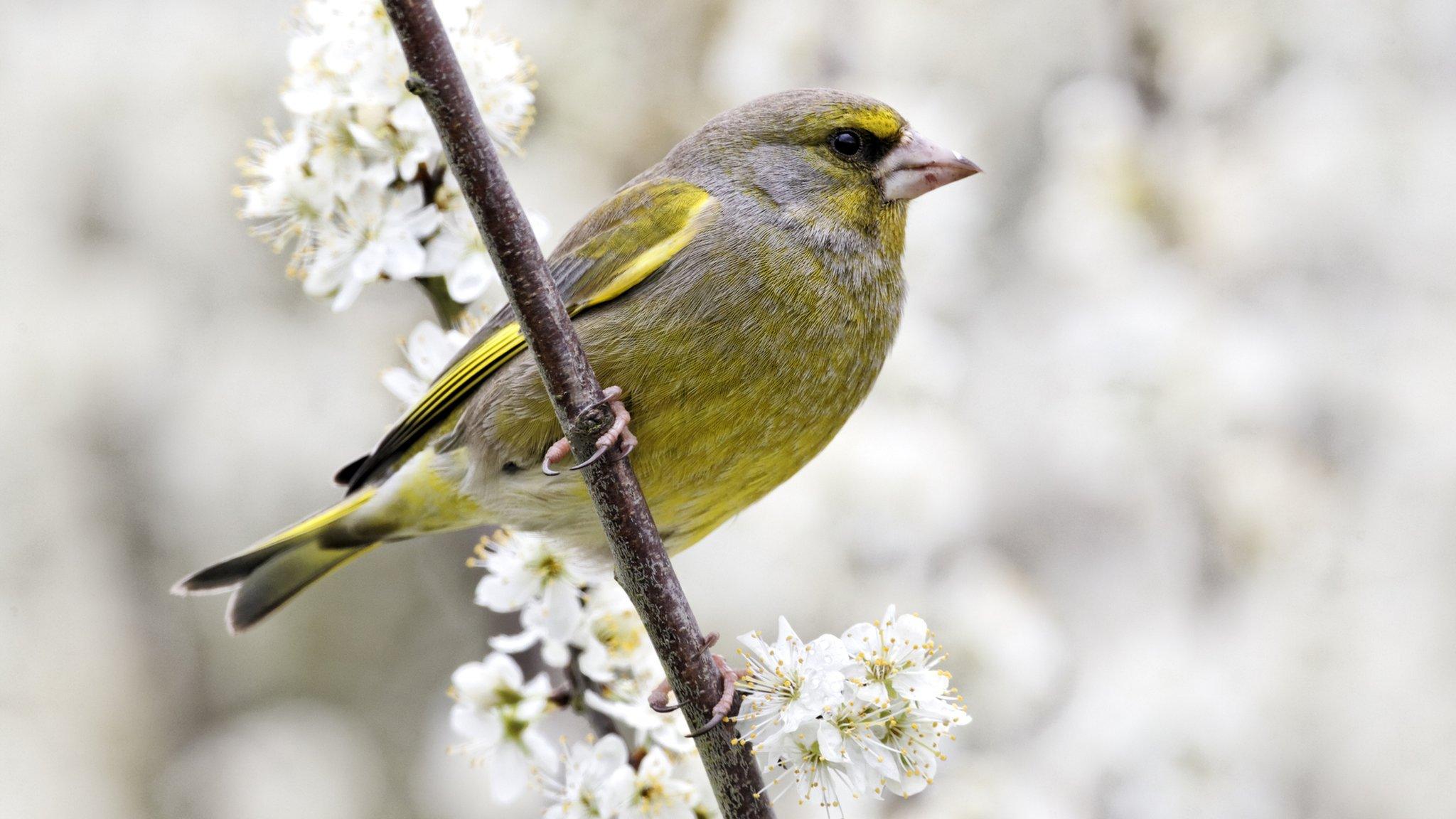Are bright city lights shrinking the eyes of some birds?
- Published
- comments
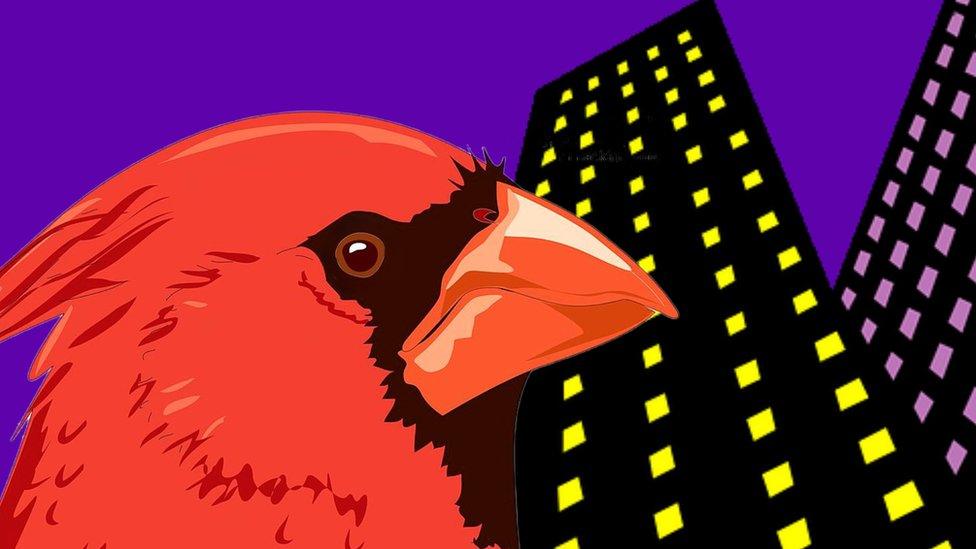
The bright lights of big cities could be causing some birds to have smaller eyes.
A recent study has revealed that two common species of songbirds in city areas - the Northern Cardinal and Carolina Wren - have eyes around 5% smaller than those of the same species living in less brightly-lit areas.
The study in San Antonio, Texas, in the US looked at ways birds living there may have adapted and evolved thanks to the influence of humans and a big, bright city.
The United States and Canada have lost 29% of their bird populations - roughly three billion birds - since 1970.
The destruction of habitats - natural spaces where birds live - is often blamed but this latest research has shown that birds with bigger eyes can struggle with the glare of city lights and sleep poorly, putting them at a disadvantage in urban areas.
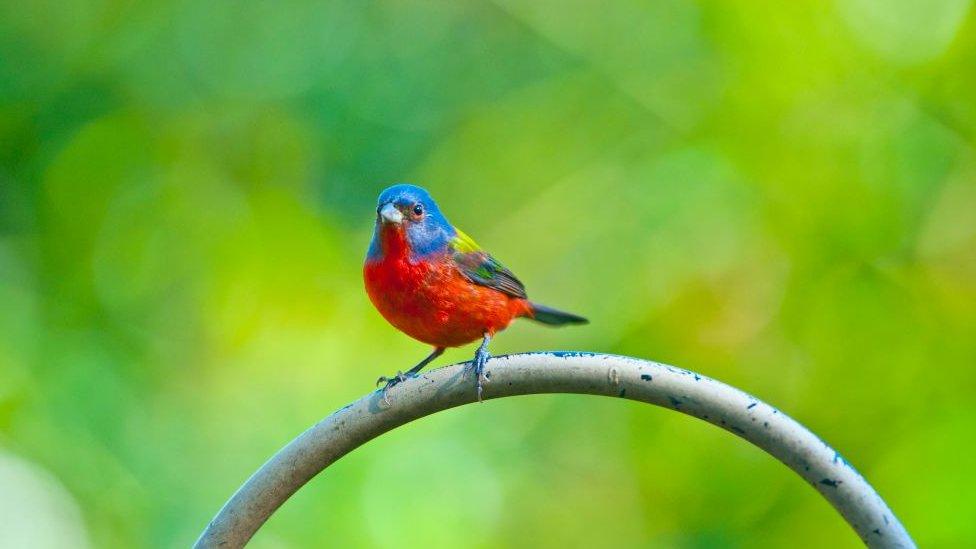
The study found that birds such as the Painted Bunting had no eye size change, despite living in the city for most of the year, because it migrates during winter months
However, not all the city birds' eyes were different when compared to the same species living in dimly lit areas.
The study showed no eye size difference in the Painted Bunting and White-eyed Vireo, two species of migratory birds which fly to different locations during the winter months, no matter which part of the city they lived in for most of the year.
"This study shows that residential birds may adapt over time to urban areas, but migratory birds are not adapting, probably because where they spend the winter - they are less likely to have the same human-caused light and noise pressures," said the study's author Jennifer Phillips, a wildlife expert at Washington State University.
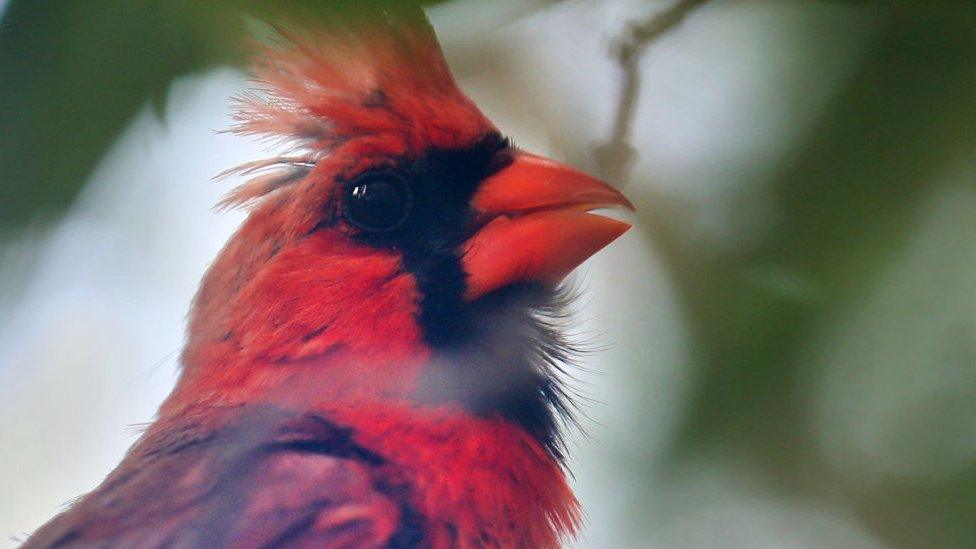
The study revealed that birds such as the northern cardinal had bigger eyes when living in the countryside compared to those that lived in the city
Phillips is now leading a team to investigate the effect of both noise and light pollution on several bird species, setting up controlled experiments to to work out how light and noise affect the birds' stress levels, sleep, songs, calls and aggression levels.
Explaining why the study is looking at the life of urban birds Phillips said: "we're trying to understand what are the benefits and costs to these animals".
- Published6 March 2023
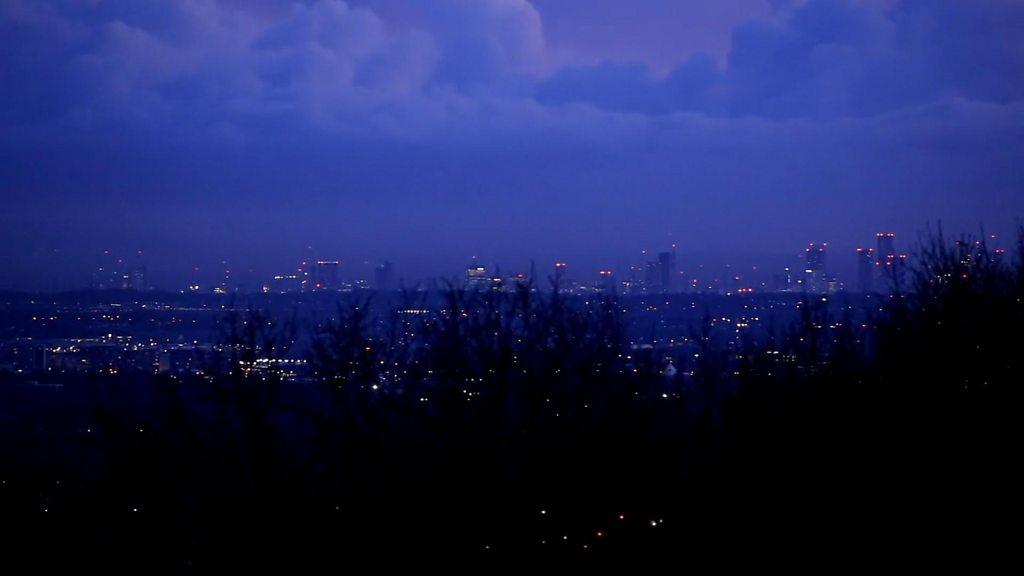
- Published1 December 2021
